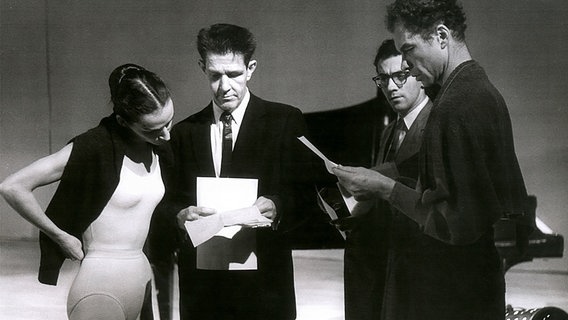 A renowned South Korean conductor said Friday he has reached agreement with North Korean musicians to hold regular joint performances by the two countries’ orchestras to ease political tensions.”I think music can move the hearts of people a little bit, although it wouldn’t do such a thing as to change the entire regime,” Chung Myung-Whun told a press conference, a day after his return from a rare visit to Pyongyang. A renowned South Korean conductor said Friday he has reached agreement with North Korean musicians to hold regular joint performances by the two countries’ orchestras to ease political tensions.”I think music can move the hearts of people a little bit, although it wouldn’t do such a thing as to change the entire regime,” Chung Myung-Whun told a press conference, a day after his return from a rare visit to Pyongyang.
Chung, who leads the Seoul Philharmonic Orchestra and doubles as a UNICEF “goodwill ambassador”, made a four-day trip with two senior orchestra officials to meet his counterparts in the North.
“All musicians reached consensus that we want a regular joint orchestral performance as well as musical exchanges,” said Chung.
He said musicians from both nations signed an agreement to promote the joint performances and a project to nurture talented North Korean musicians. The agreements still need approval from both governments.
Chung’s trip followed months of high tension on the peninsula and was part of a series of apparently conciliatory gestures by the South.
He said the joint orchestra, if approved, would be made up of an equal number of musicians from each country. Performances would be held alternately in Seoul and Pyongyang, with the first scheduled in December.
The two sides “connected through our passion and desire to spread music”, said Chung, who watched and conducted performances by the North’s state symphony orchestra and its Unhasu Orchestra.
“I wanted to play Beethoven’s Ninth Symphony but young North Korean musicians said they had never played it before… they said it would be a historic day for them,” he said, adding they had played the piece.
“Their classical repertoire wasn’t that rich but their techniques were good… they were trained never to get it wrong.”
Chung, who is also music director of Radio France Philharmonic Orchestra, received his invitation after former French culture minister Jack Lang introduced a North Korean musician to him.
“I always wondered how I could meet North Korea’s musicians, and I heard the new French government was promoting cultural exchanges with Asia, especially North Korea. So I contacted Jack Lang,” he said.
Chung, 58, had been scheduled to visit the North in 2006 but had to cancel at the last minute following its nuclear test.
“I’m grateful I had this chance, something others have wanted for a very long time… and I am sure the results will be meaningful and good,” he said.
The South’s unification ministry must by law approve all visits to the North, which remains technically at war with its neighbour.
Relations turned icy after Seoul accused Pyongyang of torpedoing a warship in March 2010 with the loss of 46 lives.
The North denied involvement in the sinking but killed four people in a bombardment of a South Korean border island last November.
The South has recently made a series of conciliatory gestures, including offering flood relief aid. Earlier this month it allowed leading Buddhist monks to visit the North.
Music has been used before in an attempt to break down barriers. In February 2008 the New York Philharmonic paid a historic visit to North Korea for a concert beamed round the world. |




 A renowned South Korean conductor said Friday he has reached agreement with North Korean musicians to hold regular joint performances by the two countries’ orchestras to ease political tensions.”I think music can move the hearts of people a little bit, although it wouldn’t do such a thing as to change the entire regime,” Chung Myung-Whun told a press conference, a day after his return from a rare visit to Pyongyang.
A renowned South Korean conductor said Friday he has reached agreement with North Korean musicians to hold regular joint performances by the two countries’ orchestras to ease political tensions.”I think music can move the hearts of people a little bit, although it wouldn’t do such a thing as to change the entire regime,” Chung Myung-Whun told a press conference, a day after his return from a rare visit to Pyongyang.






